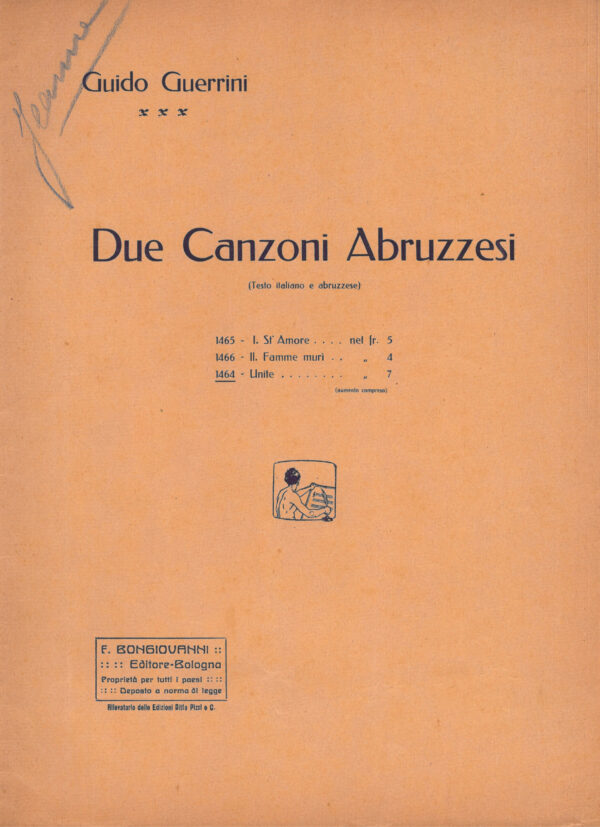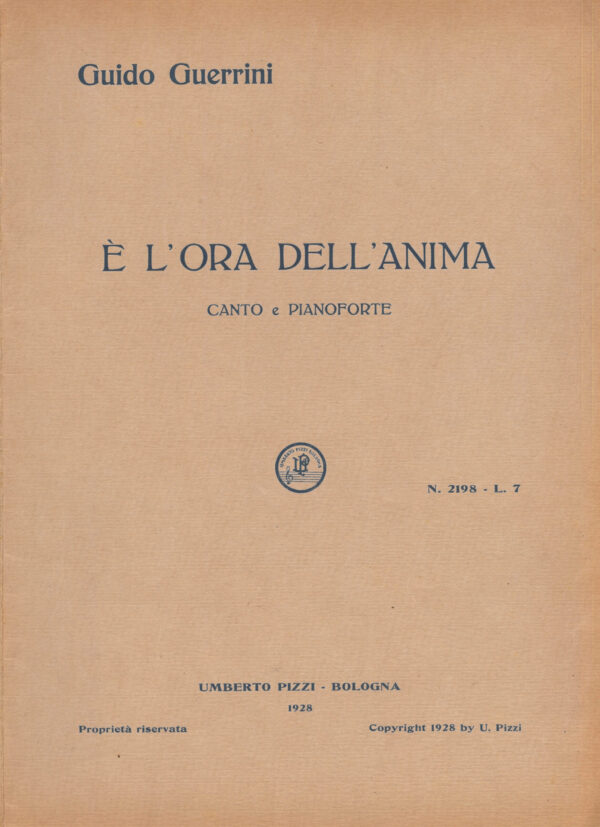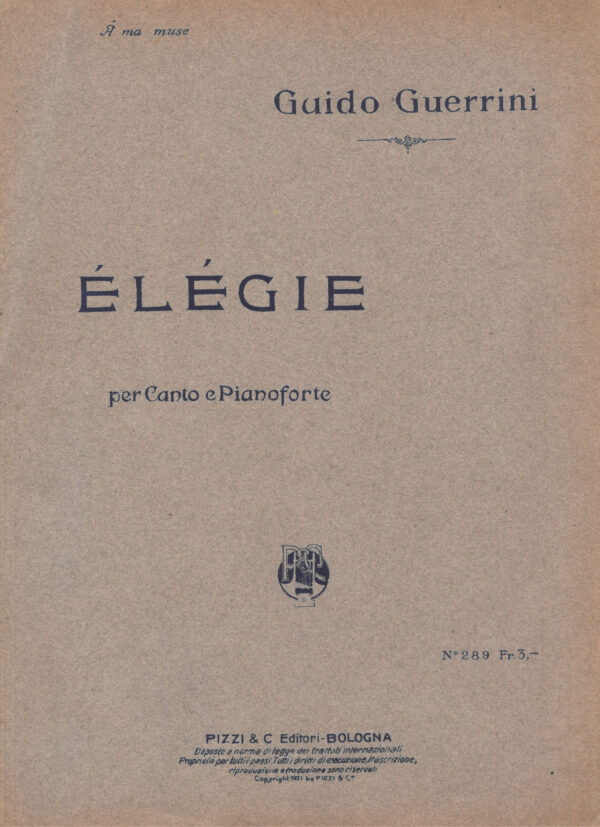Guido Guerrini
Guido Guerrini was born in Faenza in 1890 and soon began his musical studies with his father. He graduated in violin in 1911 from the Liceo Musicale in Bologna, studying under A. Consolini, and went on to complete his composition degree in 1914 under the guidance of L. Torchi and F. Busoni. He worked in orchestras as both a violinist and violist, and served as a substitute conductor in several theaters in Bologna. Guerrini dedicated himself to composition and teaching at the Liceo Musicale in Bologna, where he held the position of harmony instructor from 1920 to 1924.
His role as a teacher and conductor was significant; in 1925, he was appointed to the chair of composition at the Conservatorio in Parma, and in 1928 he became the director of the L. Cherubini Conservatory in Florence, a position he held for nearly twenty years. From 1931 to 1933, he organized the Maggio Musicale Fiorentino in collaboration with V. Gui, M. Castelnuovo Tedesco, and C. Delcroix. From 1947 to 1949, he directed the G.B. Martini Conservatory in Bologna, and then he led the S. Cecilia Conservatory in Rome until October 1960. In 1951, he founded the Collegio di Musica at Foro Italico and initiated the Associazione Giovanile Musicale (AGIMUS). From 1952 to 1957, he also conducted the Orchestra da Camera di Roma.
Guerrini was a member of several prestigious institutions, including the Accademia of the Conservatorio di Firenze (1928), the Accademia Filarmonica di Bologna (1931), the Accademia di S. Cecilia (1939), and the Consiglio Superiore delle Belle Arti (1952-58), among others.
Between December 1944 and August 1945, he spent a period of imprisonment in the Collescipoli concentration camp (Terni), during which he composed Enea and the Missa Quarta for two male voices and piano. The premiere of the Missa Quarta took place in the concentration camp during Christmas 1945. In addition to numerous transcriptions of compositions by past composers, he also wrote music for bands, film, and television, as well as lyrics for voice and piano. Guerrini engaged in music criticism and authored manuals and theoretical works, including Trattato di Armonia Complementare (Bologna, 1922). Reflecting on his work as a composer, Guerrini stated: “I am from Faenza, descended from a family of the minor nobility of Romagna, and it seems to me that a bit of that melancholy, easily perceived in the vast expanses of my fertile land, has always remained in my art” (Rinaldi, p. 8).
In 1964, he was appointed president of the Accademia di S. Cecilia, a position he held until his passing in Rome on June 13, 1965.







